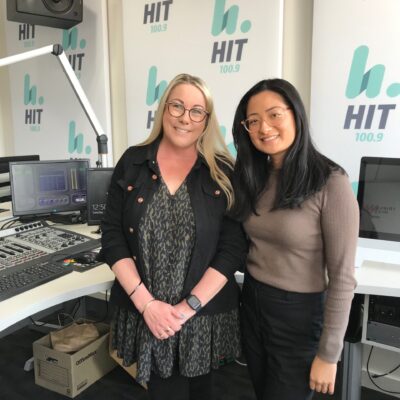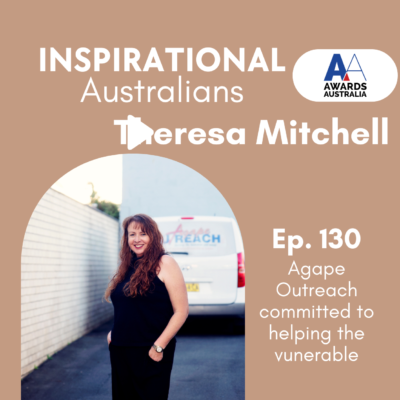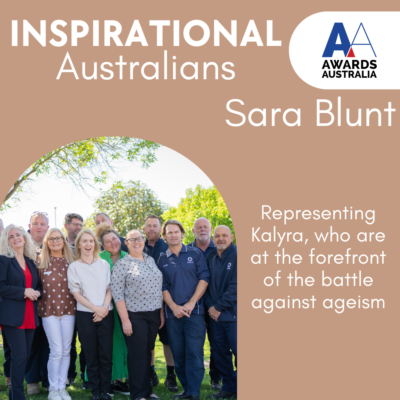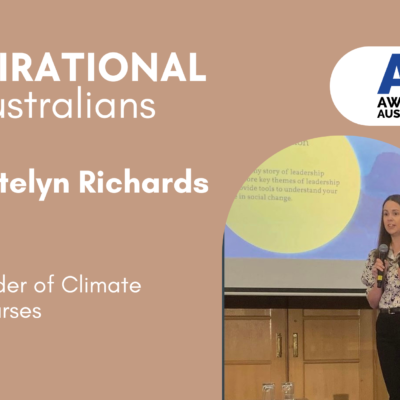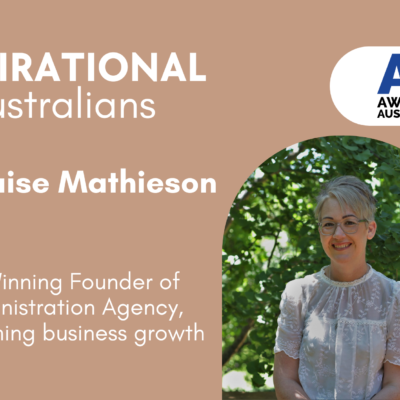In this week’s episode, Geoff is talking to Hamish Munro who was a Finalist in the 2021 Community Achievement Awards for Regional NSW & the ACT.
Pairtree delivers a cutting-edge service to the Australian agriculture sector to help our clients make the most of the smart farm revolution.
We turn your farm data and digital services into priceless information to help drive efficiencies and improve decision-making support and confidence.
Pairtree specialises in aggregating data, allowing you to access, visualise, compare and analyse information from different sources together for the first time.
We don’t tell you which hardware, software or digital services to use on your farm. That’s entirely up to you.
In addition to delivering detailed weather, markets and mapping, Pairtree Intelligence acts as a ‘data translator’ to overcome incompatibility issues between your agtech devices and digital service.
Links
Connect with Hamish on Linkedin
Connect with Pairtree on LinkedIn or Facebook or Instagram
Want to know how to Rate and Review a podcast, see this article
Follow us on our Inspirational.Australians Instagram Page
Want to nominate someone? (It can take as little as 2 minutes to recognise someone making a difference)
Like some more information on Corporate Partnership?
Transcript
[00:00:04] Annette
Welcome to the Inspirational Australians podcast, where we chat to people making a difference in their communities and in the lives of others. And here is your host for today. Geoff Griffin.
[00:00:15] Speaker 1
. Welcome to the Inspirational Australians podcast stories of inspiring achievements and community contribution. Every week we will celebrate an award program category
[00:00:32] Geoff
winner will find most we hope you’ll be inspired and encouraged to know that Australia is in good hands, together with our corporate partners and not for profit partners, Awards, Australia, showcase ordinary people from right across Australia. Doing extraordinary things. If you enjoy hearing the stories of our Inspirational Australians, please subscribe. Write us and review us. We really appreciate it.
[00:01:02] Geoff
My guest today is Hamish Munro, who is CEO and founder of Pairtree, Pairtree delivers a cutting edge service to the Australian agricultural sector. And to help clients make the most of the smartphone revolution. Hamish. It sounds pretty exciting. Welcome to the podcast.
[00:01:20] Hamish
Hey Geoff. Yeah, Thank you very much. Agriculture’s becoming sexy again and I think with data and, and fading the world. And after covid, I think there’s a New renewed interest in AG and where food comes from.
[00:01:37] Geoff
Well, I never thought I’d hear anybody saying that AGs become sexy, but I’m pleased to hear it because it is really critical to the economy and probably not enough of us really appreciate particularly us from the metro areas. How important agriculture is to our daily lives and exports as well. Hmm.
[00:01:57] Hamish
Yeah, definitely. And I think if it wasn’t for covid, I think the appreciation for food and provenance and things like that, it’s really sort of sparked that interest again. But you know, so the farmers have been out there daily working away and, and always looking to innovate and, and better manage their farms and better manage their resources as well. And with my background being a Fifth generation farmer, you know, I’ve certainly struggled with that for many years and, and hence starting trade to just get a more of an insight into all of the moving parts across the farm,
[00:02:31] Geoff
which is awesome. Fifth generation. So you really have the background and the knowledge that the absolute knowledge to understand what farmers need is how did Petry come about?
[00:02:45] Hamish
Yes, so in 2018, I had another tech company that was looking at governance and creating a governance, have full timers and, and also sort of different clubs and things like that. But New South Wales API based out of orange invited us to to come and assist with a project they had to research sites one in Malta, one in Orange, that had a bunch of different sensors weather stations, saw probes tank sensors, animal weighing, walk over, weighing scales and a bunch of other sensors that they just needed to visualize. So we were able to connect to all those different devices across the two different farms and pull that together. But what we found was that we had weather data from the weather stations and we didn’t have a weather forecast. And we had the lamb whites, which we didn’t have the livestock markets, what, what they’re siloed, what the value of those animals would be. If I was old, so hence that’s where Pairtree started was that we saw that there was, you know, all the data that needed to come to a single point. What we called a universal dashboard to enable farmers to, to pull that data together and actually see what the land rights are. And then what the price of, of the Lambs would be at the saleyards closest to the farm. Or, you know what the, what the weather forecast is to, you know, I’ve got lots of rain, I can sow my crops. But you know, what’s the next few weeks going to be, you know, to make sure that, that crop gets off when established in a way safely.
[00:04:23] Geoff
Awesome. Makes sense. And it sounds like it’s great knowledge to have to have all that in your back pocket would be absolutely invaluable. And a big shout out to dpiit because they are our major partner for the community achievement Awards in New South Wales. And we really acknowledge the minister and the Department’s fantastic support of regional and rural and New South Wales businesses. And in particular, of course, crown lands management. And that makes up a huge part of New South Wales regionally. So who makes up, Petrie? Team? Hamish is that you, are you the Lone Ranger or do you have a Team behind you?
[00:05:11] Hamish
Yeah, so in 2018 there was only three of us, but now we’ve got a Team of 10. So we’ve got six developers Plus then sort of admin, project management and you know, sort of and then myself, just continually working through, you know, finding New opportunities and greater partnerships so that we can sort of continue to deliver good services across the Australian Arctic ecosystem.
[00:05:35] Geoff
How’s business going and did it affect too much?
[00:05:39] Hamish
No, we were lucky. Our business model, you know, all of our developers are here in Australia, regional and remote. So they were able to continue their, their work. And we were lucky in the way that we structured the business that we were able to secure a couple of our white label services which are services for all their Agri businesses that need to provide integrated services to their clients. So we’re able to secure a few of those, namely options Plus, which is australia’s largest online livestock auction platform and created the livestock beihai tool, which enabled farmers to log on and put their money in to see what their, their price would be paid from previous sales. Near them as well as you know, sort of see what the markets are doing.
[00:06:32] Geoff
And Hamish, my next comment is not meant to be condescending of the agricultural sector, but a lot of people might well think you’re a farmer gets up, you feed your cows and you do Lambs and sheep, and then you sell them. And it’s that easy, but it’s really complex, isn’t it? There’s quite an integrated complex scenario for farmers these days. And your services would really empower farmers to better utilise egg. How do you go about that in terms of doing that, giving in that empowerment?
[00:07:06] Hamish
Yeah, look, there’s a large transition away from, you know, the historical what was done of getting out of bed and just feeding animals and then going back to battle or whatever sort of thing. So these days, you know, sort of with Australians sort of being an export orientated country, you know, we, we’re on track to, you know, sort of supply 100 billion, you know, sort of the farm gate by 2030 and to do that. And we need to really be really production focused and actually being able to drill into all the numbers and find out where those improvements are, like any other business, really. And so the, you know, Australia, Australian Arctic is, is quite interesting in that we have a whole range of sensors to track all the environmental attributes which we can’t control. But at least if we know how much moisture is in the soil and how much rain we’ve had. Or you know, making sure that the animals have got enough water in their tanks to decide the labor unit driving 300 kilometres to check a tank. You know, sort of, those sort of efficiencies, a really way, you know, production and then better use of sort of resources that really comes into play. So how we do that is we integrate all connect through an API which is applied between software. And so we integrate up to nearly 100 now, different sensor it is apps, satellite imagery, and all of that, that farmers then can choose which providers that say business. And so they can then just mix and match the providers that say their business where they are livestock or cropping or cotton or horticulture. But all of those different industries have a suite of different providers and suppliers that help that monitoring on their farm. And then what we do is through the universal dashboard approach is then put the data sets together so that you know, they can get a better understanding and then stack that data on, on a map so that they can see what’s happening on a block or a paddock level to see how much Ryan, or what the soil moisture is, or what the soil chemistry is, what the nutrients are there to feed the plants and then then what their yield was from that crop and things like that. All of that just creates a really large picture of where those inefficiencies are and then gives use that farmer that confidence to, to, you know, sort of spend the money that they need to do on the next crop or that the next investment of livestock will be a business model works
[00:09:42] Geoff
and a lot of this data would save livestock lives because you are understanding the crop needs, what your water levels are. You know, that was, that really touched me when you said. So if someone having travelled 300 kilometers, it could be 300 meters, it’s timesaving, it’s saving livestock lives by being able to know this information and not presuming several times saving as well would be huge. And how awesome you can share your passion for agriculture. Prepare to turn that into a business to help others.
[00:10:22] Hamish
Yeah, and unfortunately, I know the farmers pain, so it was pretty easy to, to work out how to start solving. You know that those, these key things and, you know, anyone that’s got an iPhone, you know, by 10 or 20 apps and farmers were sort of in a similar situation. But you know, what Pairtree does is combines all those different apps so that everything can be viewed through the one process or shared to their agronomist or they consultant or you know, to, you know, and a third party that, that May have a compliance program or integrity program that, you know, sort of needs to build up, you know, data sets about, you know, what the claims are for those services.
[00:11:04] Geoff
I think everybody can appreciate how frustrating multiple apps are. You know, it’s a similar thing. So it sounds fantastic that people can bring that all together. How far does Petrie reach? Is it just local to orange where you are? No. Yeah, look,
[00:11:25] Hamish
we’re right across Australia applies in Western Australia and brought through you know, many other sites as well. We’ve also just secured our first clients in New Zealand and Papua New Guinea, so you know, so we’re certainly on the up and up and with we’re sort of the last three or two thousand eight hundred twenty one. We spent a lot of time working with the research development corporation, namely an ally sort of thing as well as in New South Wales, API, Western Australian government, South Australian government, and also toowoomba Surat basin enterprise, which is, you know, sort of that South East corner of Queensland on the, on the downs country there to just prove that really complex, you know, sort of data and immigration, you know, sort of scenarios and projects to, you know, sort of enable at a, at a higher level of understanding what the problems are, what, how data should sort of Be pulled together and not the easiest case was probably not actually the first one at the end of 2018. We did with Amelia, which shows the complexity of what we do in that. We had five different farms of a spread across a couple of hundred kilometres. We had five different networks. We had to connect to five different Wi-Fi type networks. So there was LoRaWAN, 915, and 93, which would take different frequencies, Sigfox satellite, cellular connectivity. But then we had 15 different providers, 25 different device types that were spread across those different networks and providers and resulting in 280 different devices across those five farms. And so, you know, we had to make sense of all of that before the farm manager at the time within that project. And hence, we’re sort of continually done small projects with Mike Wallace of Australia to leverage data. Firstly, how to pull it together to make it even more sensibly, more topic specific, but then later turn to actually then bring it into a compliance and integrity as to, you know, sort of help farmers so that they try and reduce red tape.
[00:13:28] Geoff
I’m sure the majority of us would have no idea how to connect all those things, including farmers. So you’re probably a lifesaver in that regard to help them bring all these complexities together. And when you think of rural and remote communities, these are real issues that people are facing every day. What percentage of farmers would use data technology similar to that which you provide?
[00:13:58] Hamish
Yeah, so we’ve been saying for a long time that 80 per cent of farmers have between five to 10 apps. Now that one that also includes is sort of digital agriculture Bureau of meteorology or you know, a few different weather weather apps and you know, livestock market apps as well as then, you know, only a few would have one or two, you know, sort of sensor apps or, you know, sort of apps to manage their paddocks, they cropping all their livestock, so you know, so, but again, coming back to the iPhone analogy, you know, there’s probably five or 10 markets that, that are connected, that farmers are always looking at. Absolutely. And so it was, the little bit of research that we’ve done is we sort of say that, you know, at least 80 per cent of farmers would be sort of having a majority of all the direct AG tech on farm apps. Or at least, you know, a big wedge of, of, you know, digital AG, you know, supporting decision making and sort of apps that are out there. So a lot of imagery and then all that
[00:14:55] Geoff
and farmers need all the help they can get. It’s a tough gig. I think what you provide is absolutely critical. I mean, what are some of the guiding principles, Pairtree, what makes you tick?
[00:15:09] Hamish
Yeah, well, I was at a field day late last year, and someone described us as Mr. Switzerland because we juggling, you know, myriad integrations that we, you know, have to navigate me. And I’m a lot of a lot of it to provide farmers with True agnostic sort of services so that they can choose one of 13 different weather station providers. We have really guiding principle Firstly, as you know, the complement and not compete with, with the data that we, we gain. So we don’t try to replicate whatever the service of the eight providers trying to do. We try to leverage it and use it in other contexts. That, you know, adds value back to the farmer for purchasing the, the solution. But it also enables the providers not to be worried about doing too much development work outside, whatever they line or their, you know, their case service, you know what, what they’re an expert really
[00:16:06] Geoff
bring it all together is really important.
[00:16:09] Hamish
Yeah. So we can be the mortar and the bricks.
[00:16:12] Geoff
Yeah. Must be satisfying to be able to help farmers in this way.
[00:16:17] Hamish
Yeah. Look it’s, it’s a really tough gig because I think we’re a little bit early at the moment in the fact that, you know, sort of the importance of data is really, you know, sort of Ali, Becoming forthright for farmers at the moment. And, you know, the digital literacy or, you know, things they talk about a digital native who, you know, is not all of your oil. We didn’t grow up with, with devices. And so, you know, a lot of farmers are still sort of struggling when they are on how to utilise that, that digital device or that data they know that’s important and you know, so we’re sort of straddling a couple of different sort of issues. But it’s, you know, the proof is in the pudding with and providing flexibility for farmers to start their journey. If it’s a weather station or if it’s a John D, you know, sort of operation center that gives them their yield or their paddock and things like that. They can start wherever they like the pantry. And I think that’s one of the, one of the approaches that, you know, we have pantry Plus or pantry core, which is the basis of our technology. And that’s just the real basics for the farmer to get started and pulls together a lot of that, that different, you know, sort of basic data that their maps their weather forecast. The ability to say whether they should be spraying pesticides that day, whether the wind’s going to be to too fast or to a direction that’s going to affect crops as well as then also sort of a lot of historic data as, as, as well as a few other services, so that’s, that’s where the pantry Plus service can be bought and then everything can be built on top of that. You know, we’re integrated on top of that other services that, that are important to the farmers business.
[00:18:06] Geoff
This valuable information for farmers, have you spread the word about Pairtree?
[00:18:12] Hamish
Yes, I would say our white labels are our real crunch there in the fact that, you know, there’s a number of large agribusinesses that we’re sort of working with now. So they say the importance and I understand, you know, sort of what the limits are of their services, back to the farmers side by us, you know, breaking those barriers of connecting, you know, we have an agronomist company that, you know, sort of knows, you know, what advisory role that they need for their clients, clients are asking for. So you know, we build a connected service for them to be able to deliver that. We have other AG tech companies that, you know, need all the other data sets outside, whatever they line of, you know, sort of expertise is, you know, we provide and connect, you know, all of those other datasets to them so that we don’t have to, you know, invest in hardware which, you know, is not really in their wheelhouse, they can, you know, collaborate with other strong excite companies to really build an ecosystem.
[00:19:14] Geoff
Yeah, fantastic. And I believe you just received a government grant to work with Syngenta. Can you tell us why that’s must be pretty exciting for you. Tell us about that.
[00:19:25] Hamish
Yeah, Thank you. It’s, it’s really exciting. Syngenta is the world’s largest chemical company at the moment. And so the Australian, I say grant, which was which we were lucky enough to, to be awarded at the end of last year, gives us a 12 month project and then hopefully a second second project following. But ultimately, you know, in this project the farm junction point Syngenta soils saw an opportunity because I had disease models that really accurate, but they were unable to tap into hyperlocal on farm in paddock type weather stations to actually provide data. And so they were using what’s called interpolated weather data, so interpolated is the guesstimate a really good guesstimate of what the weather would like to be between two physical weather stations, which is only, I guess when I’m not accurate enough to really drive these disease models. So our project is really about enabling a Syngenta to provide better disease models for different crops, for you know, sort of particularly wheat and canola, and then other horticultural crops to their clients. But allow their clients to opt in their weather station to drive the model. And so that there’s a higher confidence and also, you know, a greater reactive mass of, you know, use that data are actually true and correct. And should I make sure that I can be preemptive and, you know, sort of spray with either a biological or spray with a, you know, a softer chemical than being reactive traditionally. Which would have been, oh, I can actually see the disease. And once you can see eye disease in, particularly in wheat, something went wrong. You know, it was too late. There’s already an economic loss on that productivity side. So yes, I have been giving Syngenta the ability to have a far softer approach through you know, sort of chemical rotations and management is I think it’s going to be a fantastic opportunity for us.
[00:21:35] Geoff
Sounds amazing. And the science takes all of the guesswork out of agricultural farming, too
[00:21:42] Hamish
Mm-hmm, and that’s where these complement not compete. So the way the station providers, you know, not only the farmers have the choice of, you know, 13 different weather station providers that, you know, they can either choose on budget, cheaper expensive or on service, you know, not or quite comprehensive and you know, so the farmers have the ability to, you know, choose the weather stations that will suit their business and their budget. But then that, you know, we can disconnect that, that weather station to these disease models, which, you know, they’ve had years of, you know, scientific research and development. You know, make sure that they’re accurate for pursuit specific diseases
[00:22:24] Geoff
and through Pairtree you’ve been doing some amazing work and I know you don’t look for accolades, but how did it feel when you made the finals for the agricultural innovation award last year?
[00:22:37] Hamish
Now he was and was also there, it was great exposure and particularly Thank you to prime Super you know, sponsoring the category. We had been attempting it for two or three years and it made the semifinals warmer for a for a year or two. But you know, that next step, I think it’s going to be the election all of the way our business charity, the business as well. So we were very excited and unfortunately we couldn’t get to the the event due to covid. But yeah, we were, we were keen to, to go and enjoy the evening and regardless of the result but it was, Yeah, it was, was very nice to get that recognition.
[00:23:16] Geoff
And it was such a shame that we weren’t able to meet in person. The decision was made of course, that due to covid, it was the safest option for people to do it online. It was sad, it’s always wonderful meeting people like to self in person and to be able to shake your hands and say Thank you for all that you do. It’s really a special moment for us and of course, each other to meet each other and understand the connection opportunities. And for all of our listeners nominations will be open again for the 2020, two Awards. Very soon. If anybody wants to know more about what categories are available, you’ll be able to head to Awards Australia dot com in the Near future. As they open again in late May. And we shoot something that we might not know about. Sue and Petrie. Probably I don’t know about probably
[00:24:12] Hamish
about 2008. I know as well, a couple of guys and I cringe we started up. I made up to really, you know, sort of on earth I suppose is probably the best way to describe it. You know all the techies and the developers and you know, sort of innovative people around the orange and surrounding districts. And it was a bit of a mouthful, but it was a central West entrepreneurs and innovation made off. I think it was called originally, but the way that we quickly change that to innovate orange. And so anyone, if they, if they’re interested in it, they can check out innovate orange on the made up app which is, you know, sort of just a community, you know, sort of general made up topic related sort of meeting group, but just search for orange, IU, which is sort of, you know, so you don’t end up in Orange County in the US, but that the made up great. What we do is monthly or BI monthly depending as we get everyone together. You know, we generally pick a topic, whether it’s electric vehicles, whether it’s rockets and space or satellite imagery, or AG tech or smart cities, or you know, a whole range of different, different topics that we’ve had over the last few years. But the good thing is Craig maharshi, the guy that’s taken over it, does it as a hybrid event now as well? ? So it is actually online so that you can enjoy it from all the way elsewhere. So it’s, it’s been really good because ultimately what we wanted to do was, was actually find, you know, who else is in and around orange that is in software development or innovation and doing some really cool stuff. And we found out we had two people in Orange that were for Google, you know, got the guys from IBM and all because of remote working. And so, you know, sort of normal. Now suppose that you know that all of these people had sort of been in around orange for a long time and the know who to contact or, you know what I will to sort of build a network. We’ve been slowly building a bit of a network and sometimes we’ll have 70 old people at sort of take the gentleman was about 20 or so it’s, it’s great made up and there
[00:26:25] Geoff
has good collaboration.
[00:26:28] Hamish
Yeah. It’s just something that we do as a community thing and just giving back and just trying to be able to meet New people and really network I think that’s it. That’s the key thing.
[00:26:39] Geoff
And to you personally, there must be times when things get a little too much, you know, we all feel low from time to time. What do you do to yourself to help reset bounce back from those moments?
[00:26:52] Hamish
If you really want to know how I go farming, I’ve got two small parts and just I’ve got a few cattle running around. So I go chase them around and fix fences or do whatever so otherwise just hang out with the kids and you know, that’s the stuff. So that’s good.
[00:27:09] Geoff
When you had covid recently yourself didn’t you know how you feel now you’re doing very well by the way. Have a few recover from that?
[00:27:17] Hamish
Yeah, I was pretty severe cold sort of thing. So you know, you got me a couple of hours ago. So now like it was, Yeah, I wouldn’t want the audience to get it that there was some that was there that knocked me around for a few days. It’s something that I think unfortunately that I live with on the night. If we don’t get it too many times in one year.
[00:27:44] Geoff
So what’s next for? Hamish Munro and Patrick?
[00:27:48] Hamish
Yeah, look, we’ll keep chipping away and really this government, you know, it sort of ends in December. So we need to make sure we deliver some great outcomes with that. And we’ve got a couple of projects still to finish up before June while South Australia and a few other sort of bases and things like that. The big thing is we’re actually moving to integration as a service. So we’re actually looking for agribusinesses or, you know, sort of different consultants and things like ERM companies like that, businesses like that, that actually, you know, need, need to be able to connect to their farming clients or they, and pantry can be used in other resource management as well so, so when you spoke about crown lands and things like that. So anyway, where it can be deployed, you know, we can connect to it with things where we’re looking at, you know, providing those that are better integrated installations of all of the data in one spot for, you know, some of those agribusinesses or, you know, people that are looking for that data, it’s not that was always happy to have a chat and then sort of better understand what people are looking for and see whether we can help
[00:29:02] Geoff
And do you have any words of wisdom from listeners? I mean, you did have great insight to stuff, but what about just general words of wisdom?
[00:29:10] Hamish
They were just talking about networking a minute ago, and I think what comes to mind is that, you know, I mentor mine said whenever you go somewhere, always make sure you meet two New people, force yourself to, to get out of just going to your comfort zone and meeting the people, you know, if you always met two New people, you’d be surprised at who or what or you know where those doors opened up. And I think that’s the key to networking.
[00:29:37] Geoff
Very true. I like that always. So there’s a go. And sometimes we need goals to seven, some sort of vision of what we need to do in life, whether it be just going down the street, we at work or whatever it might be. So that’s pretty cool. I like that. Thank you. And how much weight can our listeners find out more about Pairtree and connect with you in Pairtree?
[00:30:03] Hamish
Yes, just Pairtree echoes the other is our website. And if they’re on Twitter, they can go to Patrick on Moscow Dash, or just Facebook and LinkedIn and Instagram. I think it’s just Pairtree intelligence. Yeah. They’re all pretty simple to find. And Pairtree is in a pair of shoes. So I R T. Not the normal Pairtree but yeah. That’s what we do. They pair things together.
[00:30:33] Geoff
Very cool. Well Hamish, it’s been an absolute pleasure to have you on the podcast. Thanks so much for sharing a little bit about what Pairtree does with us. I hope you hung through and you’ve enjoyed the podcast as well.
[00:30:47] Hamish
And thanks very much, Jeff. It’s been fantastic and really appreciate the Awards. I think it’s a fantastic thing, particularly celebrating the regions. That’s why I think there should be more of it. It’s that the sandstone curtain seems clear to a lot of people that there’s a lot of really Good Stuff happening on the other side. And then I think that there’s a few of us that get that recognition and then particularly through your channel here and the podcast, you get those messages back out and it’s, it’s a fantastic service. Thank you very much.
[00:31:26] Speaker 2
Thanks émission. Thank you for all that you do as I said a little earlier and everybody listening has enjoyed hearing a little bit more about Pairtree and his Team and the value that time is adds for the agricultural sector through pantry. And until next week everyone, please be kind to remember that together we can make a difference.
[00:31:52] Geoff
I hope you enjoyed today’s interview as much as I have. It’s lovely to subscribe to our podcast that you won’t miss an episode. Join us each week as we talk with ordinary Australians, achieving extraordinary things. Did you know that Awards Australia is a family owned business that probably makes a difference in the lives of those that make a difference for others? And we Thank our corporate not-for-profit partners
[00:32:19] Geoff
to
[00:32:19] Geoff
making
[00:32:19] Geoff
award
[00:32:20] Geoff
programs possible. Do you know someone that’s making a difference? Or maybe your business might like to sponsor an award. Contact us throughout Instagram page. Inspirational thought Australians will head to our website. Awards, Australia outcome would be great if you could share the site with your network. Because who doesn’t like to click news story, and please write and review us. We would really love to hear your thoughts until next week. Stay safe. And remember, together we make a difference.



